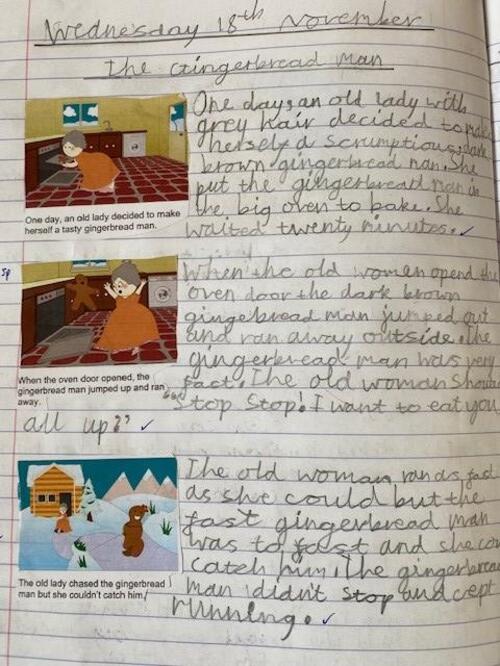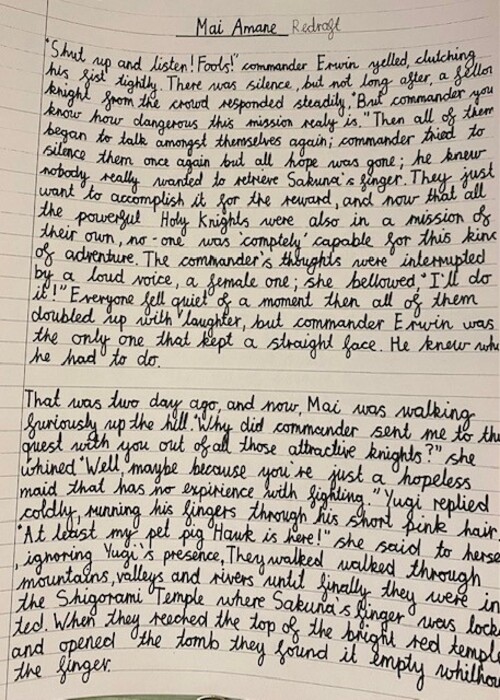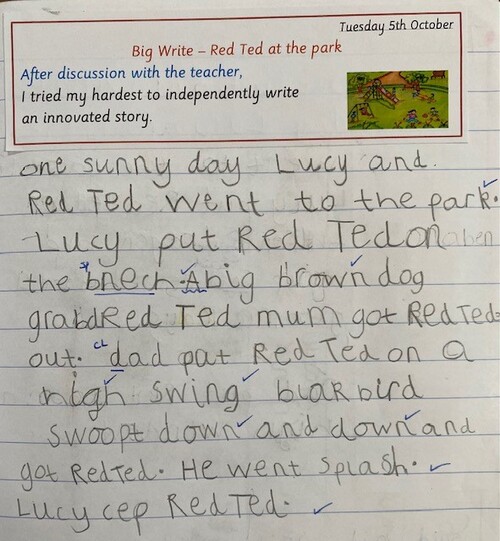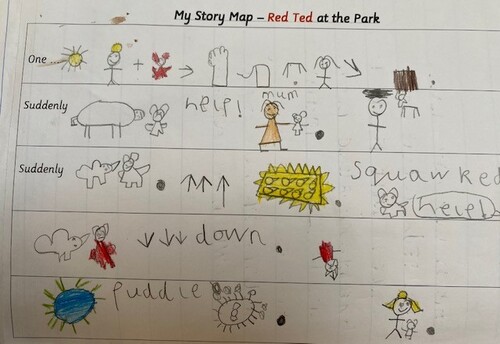




|
At Huish, English sits at the heart of the curriculum. We place high emphasis on the teaching of speaking, listening, reading, vocabulary, writing, spelling, grammar and handwriting. We teach English daily throughout the school and know that for children to become excellent writers they need to read. We aim to engage children with different genres of books and encourage them to read for pleasure. Every classroom has a book corner and a good selection of books for the children to choose from. As well as this, we ensure every teacher delivers daily storytime to their class, thereby providing children the opportunity to listen to quality texts offering rich and varied vocabulary that inspire and promote a love of reading and writing. We aim for all Huish children to leave Year 6 with secure English skills that will allow them to thrive and continue their learning as they embark on the next chapter of their education. |
|
At Huish, we ensure children become fluent and engaged readers by using the following: Accelerated Reader. This is an effective tool to manage, monitor and motivate individual children’s reading. From as early as Year 1, children are able to access an intuitive resource that offers a personalised insight into their progressive reading journey. This is closely monitored to ensure progression and success for every child, which is celebrated half termly and rewarded with a book of their choice. An essential reading list is used by all teaching staff to ensure children are exposed to a wide and diverse variety of language rich quality texts. This approach ensures that pupils experience a broad range of genres and authors, both modern and classic, throughout their primary education. Reading Challenges. As children enter KS2, to continue to promote their love of reading, they are encouraged to engage with several reading challenges: 10 Author Challenge, Michael Morpurgo Challenge and Classics Challenge. Upon completion, children receive a prize. Weakest 20% Readers. Extra daily practice and support is provided for these children in every class. In addition to this, class teachers set up Reading Action Plans (RAPs) to regularly monitor each child’s progress. Vocabulary development. A strong and positive ethos has been created at Huish to expose every child to the three-tier vocabulary system and encourage children to use rich vocabulary within their writing across the curriculum. Comprehension. Weekly reading comprehension lessons are carefully planned to support the development of children’s reading skills. In these lessons, children analyse varied, quality texts and respond to questions focused on specific reading skills; the use of stem sentences linked to each skill supports this. Children are also encouraged to use sentence stems in their verbal responses to reading; the opportunity to share and develop their ideas aloud enhances the quality of their written responses. Writing, spelling, grammar and punctuation. Carefully planned Programmes of Study ensure that pupils engage with a range of genres each year. The Progression of Skills documents inform units of work that are designed to move from reading into writing and ensure children learn, practise and apply the knowledge and skills necessary to use the English language confidently and effectively across the curriculum. Speaking and Listening. The skills of speaking and listening are embedded in our English curriculum: Talk for Writing, verbal stem sentences to support comprehension, targeted vocabulary development, opportunities for debate, and the presentation skills of expression, intonation and enunciation are amongst the tools used to support children in acquiring good levels of oracy. |
|
The aim of Oracy is to help pupils become effective and confident communicators for the here and now and also in readiness for later life. This will underpin the children’s ability to make a positive contribution and to become effective global citizens. We are working on providing a high-quality Oracy education, where children learn through talk and to talk. We aim to provide Oracy opportunities throughout the curriculum to help pupils increase in confidence, articulacy and to help the children ‘find their voice’. Pupils will explore Oracy through exploratory and presentational talk and staff will be able to use the Progression of Skills document to track and support progress. Our classrooms will be rich in talk, from talk partner work to whole class discussions and presentations. Staff are aware how talk aids teaching, analysis and higher order metacognition. Oracy is viewed as a tool to aid learning in all subjects and will be noticed and celebrated throughout the school. We aim on building on and progressing specific Oracy skills throughout each year group, allowing our students to leave our school as confident communicators. We ensure children become confident communicators through
|